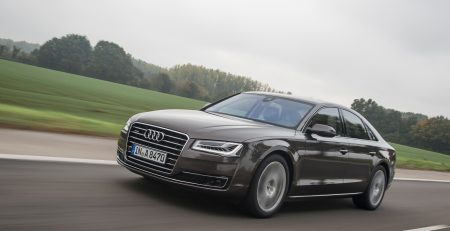London announced a T-charge from late 2017 for Euro 4 (EU4) vehicles, while Stuttgart banned Euro 5 too. Will London step u read more
The emissions rigging scandal: explained
 Image Credit: Ralf Roletschek /
fahrradmonteur.de
Image Credit: Ralf Roletschek /
fahrradmonteur.de
The ongoing emissions scandal involving Volkswagen, dubbed the "diesel dupe", has been the talk of the motoring world since breaking earlier this month.
The scandal was discovered by NGO, the International Council on Clean Transportation (ICCT), after they undertook independent on-road emissions tests that revealed a much worse emissions performance than expected. Subsequent tests on a dynamometer produced emissions well within standards, leading to investigations into potential cheating.
Now experts say that VW are not the only company that are involved in emissions rigging, with others expected to be partaking in similar breaches.
For those who are only just catching up to it and still not sure what exactly emissions rigging is, why it matters and what it could mean to you make sure to read on for all the available information.
What is car emissions testing?
All vehicles must take an official emissions test under EU law. This is an assessment of a vehicle's pollution output during stimulated driving conditions, where it performs the New European Drive Cycle (NEDC).
In order to pass the vehicle must meet the latest emissions standards set by the European Commission. This must be done before they can be sold to consumers. It is carried out in a government-approved test facility by a government-appointed independent witness. The vehicle's components must be present and cannot be tampered with.
The EU law on car emissions testing differs slightly to the U.S.
What is emission rigging?
This is when carmakers make their vehicles appear far less polluting than they actually are. Volkswagen has admitted to cheating emissions test in the United States by fitting devices in diesel engines that are able to detect when they are being tested, and thus changing the performance accordingly to improve results in order to pass the test.
The 'defeat device' is believed to be a computer software that is designed to sense test scenarios by monitoring speed, engine operation and air pressure, according to the Environmental Protection Agency (EPA). The system then reconfigures engine performance and emissions in order to pass the test.
These cars were coming out of the tests and passing with flying colours, when in actual fact the VW diesel cars were emitting up to 40 times more toxic fumes than allowable in the U.S.
How will it affect you?
It has been revealed that almost 1.2 million vehicles, including Audis, Seats, Skodas, and Volkswagen cars and vehicles in the UK are involved in the emissions scandal, meaning more than one in 10 diesel cars are affected - making the UK one of worst affected countries.
There are many issues facing car owners that may be unknowingly involved including worries about the original cost of the car and its resell value.
Volkswagen have stated that in the next few days they will provide the vehicle identification numbers for affected brands and models to UK retailers.
What else will be affected?
The environment has been polluted by harmful NOx emissions including nitrogen dioxide, coming from vehicles that have been around since 2009. According to analysis, between 250,000 to 1 million extra tonnes of harmful emissions has been exposed.
Once leaked into the environment the fumes can then cause damage to humans by leading to inflammation of the airways, provoking breathing difficulty, especially for those with asthma.
Demand for diesel engine cars will unsurprisingly fall, with moves in motion to limit diesel cars in some cities, despite Department for Transport figures showing that 10.7m diesel cars were on Britain's roads at the end of 2014.
Ultimately, the fallout from the scandal is sure to see demand for restructuring of emissions testing.




